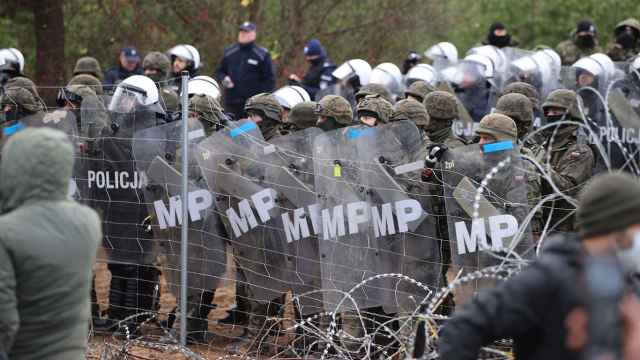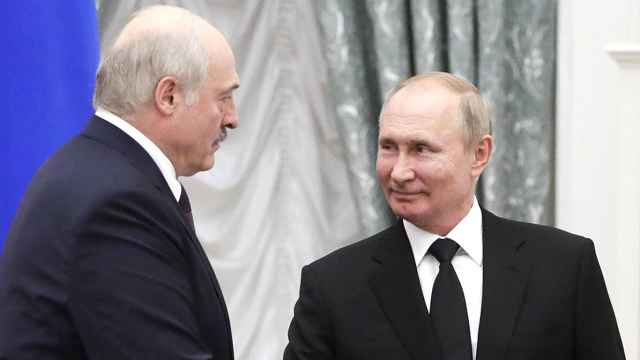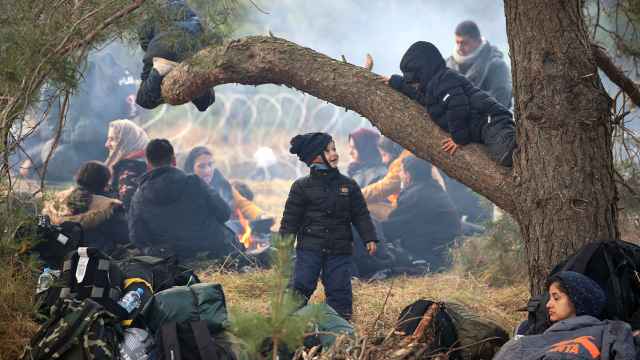Russian authorities are investigating the mysterious death of a Nigerian immigrant at a nightclub 500 kilometers north of Moscow.
Gabriel Segun Ajayi, 32, gained national attention this spring after a daytime talk show covered his family life in the northwestern region of Vologda, where he moved to marry a Russian woman. State media has called Ajayi a “Nigerian prince” because he is said to be the son of one of the tribal leaders in his native country.
Ajayi’s Russian wife told official media in the steel town of Cherepovets that he had died from a heart attack at a nightclub late on Friday.
“He wasn’t taking any drugs, he was just sitting there drinking tea,” Natalia Vedenina, 50, was quoted as saying Monday.
“My husband hasn’t previously complained about his heart. I found out about everything two hours later,” she said.
Ajayi, who met Vedenina online in 2009 and married her in 2013, is survived by 14 month old twin boys.
Regional investigators told Interfax that they have launched a probe into Ajayi’s death.
“[A] forensic examination will provide more precise information about the cause of death. There is currently no reason to suspect there was any foul play,” the Investigative Committee’s Vologda branch said.
A feature on Cherepovets mayor’s office website in 2015 said local residents had accepted the newcomer as their own.
“However, the African national doesn’t risk going out into the city in the evening: He fears it will be difficult to communicate with the police because of a language barrier,” the report said.
A Message from The Moscow Times:
Dear readers,
We are facing unprecedented challenges. Russia's Prosecutor General's Office has designated The Moscow Times as an "undesirable" organization, criminalizing our work and putting our staff at risk of prosecution. This follows our earlier unjust labeling as a "foreign agent."
These actions are direct attempts to silence independent journalism in Russia. The authorities claim our work "discredits the decisions of the Russian leadership." We see things differently: we strive to provide accurate, unbiased reporting on Russia.
We, the journalists of The Moscow Times, refuse to be silenced. But to continue our work, we need your help.
Your support, no matter how small, makes a world of difference. If you can, please support us monthly starting from just $2. It's quick to set up, and every contribution makes a significant impact.
By supporting The Moscow Times, you're defending open, independent journalism in the face of repression. Thank you for standing with us.
Remind me later.






